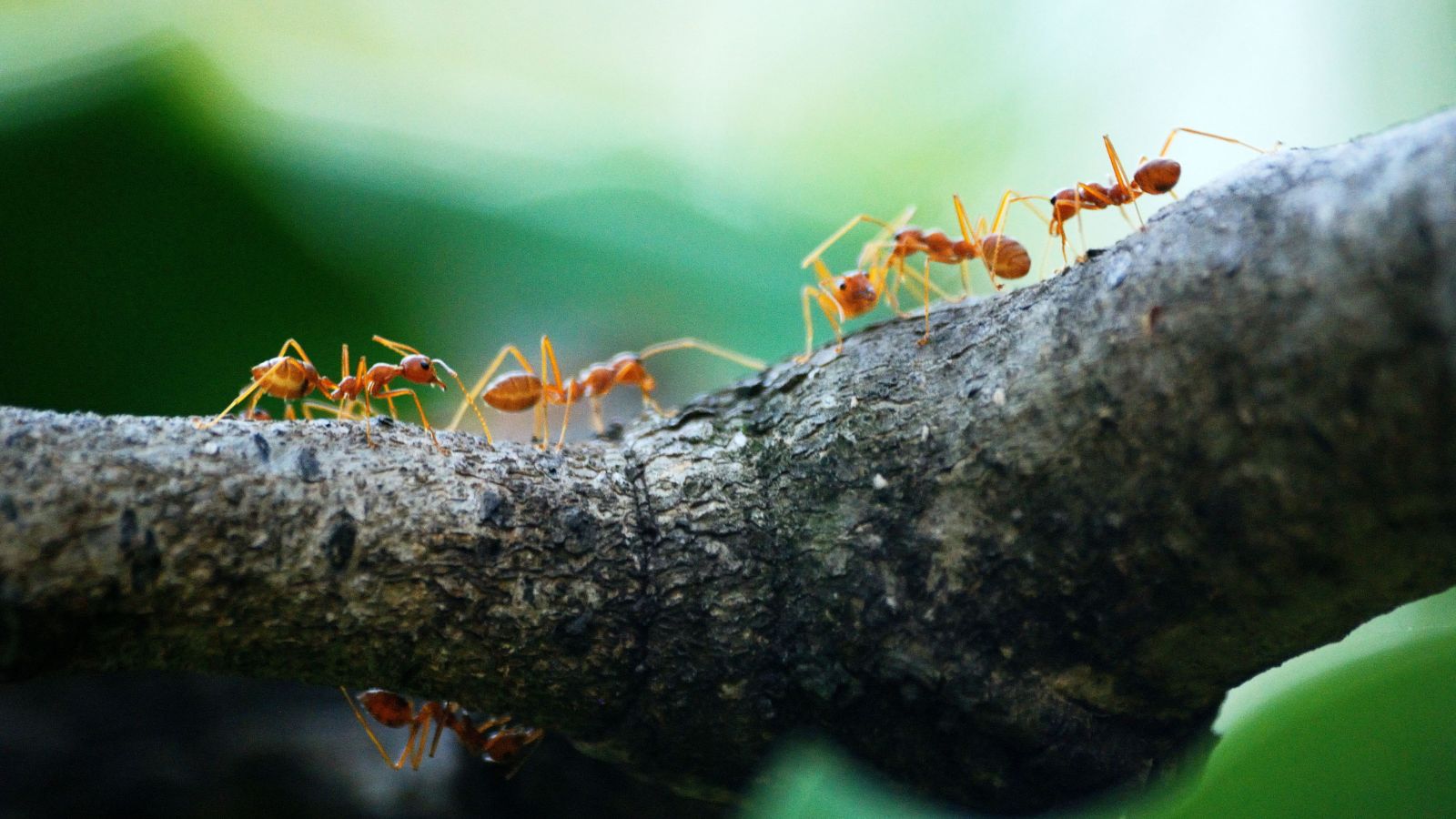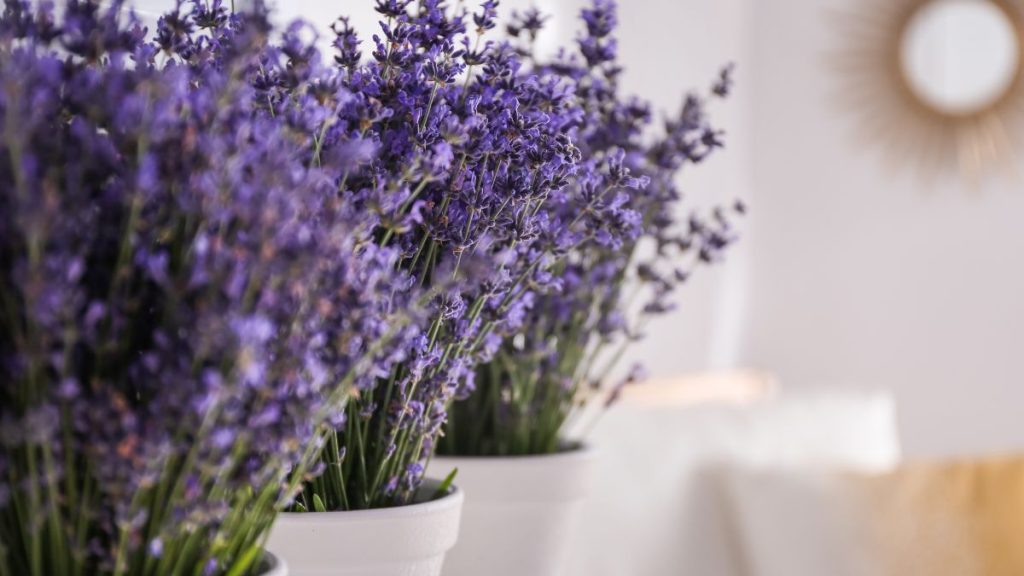Keep Ants Away With These 10 Plants They Hate

Discovering a trail of ants marching towards your garden can be disheartening, especially after all the care you’ve put into your plants.
These industrious insects are known for their relentless search for food and can soon overrun an area if not checked.
While reaching for chemical repellents might seem the easiest option, you might seek a more natural and eco-friendly approach to protect your garden.
Ant infestations are a common issue for gardeners and homeowners alike.
The key is not just to eliminate the ants but to do so without disrupting the delicate balance of your garden’s ecosystem.
Natural control methods are often preferred for their lower environmental impact and the safety of other garden dwellers.
Incorporating certain plants into your garden can provide a dual-purpose solution, enhancing your garden’s beauty while naturally repelling ants.
They can act as a safe and aesthetically pleasing line of defense, keeping your green haven serene and ant-free.
Why Use Plants to Repel Ants?
A Natural Defense Against Pests
Using plants to combat your ant problem in the home or garden harnesses the power of nature’s repellents.
Certain plants’ strong scents and essential oils act as a safe, eco-friendly deterrent for ants.
These aromas provide a hidden barrier to your ecosystem but effectively keep ants away.
Unlike chemical pesticides, these plants offer protection that’s harmonious with your surroundings and poses no harm to pets or children.
Long-Lasting and Synergistic
Integrating specific plants into your garden helps get rid of ants and offers sustained control against these pests.
Once these plants take root, their leaves release repellent aromas and oils that ants find off-putting without frequent reapplication.
Additionally, they work well with other pest management strategies, playing a part in a broader, integrated approach to maintaining a healthy and balanced home environment.
How Plants Repel Ants
The Role of Strong Scents
Many plants emit a strong scent that ants find disagreeable.
For example, lavender and rosemary are renowned for their pleasant aroma to humans, but their powerful fragrance disrupts the pheromone trails that ants use to navigate.
When you plant these aromatic herbs in your garden, you’re creating a natural barrier that confuses ants and makes it difficult for them to establish a path to your plants.
Natural Oils and Compounds
Certain plants produce essential oils or compounds within their roots that ants avoid.
Mint, particularly peppermint and spearmint, is known for its refreshing scent and high amounts of essential oil, which serve as a repellent.
Other plants, like catnip, appeal to felines and contain toxic oils to ants.
Incorporating these perennial plants can help prevent ants from settling in and will assist in maintaining the health of your garden by naturally deterring these pests.
Most Effective Ant-Repelling Plants

When it comes to keeping ants at bay, certain plants are particularly effective.
Incorporating these into your garden or home can be a natural deterrent to these persistent insects.
Mint
Mint varieties, such as peppermint and spearmint, emit a strong scent that confuses ants and masks their scent trails.
You can plant mint around the perimeter of your home or garden as a fragrant and effective barrier.
Lavender
The distinctive fragrance of lavender is unappealing to ants, making it a great addition to your ant-repelling arsenal.
Place potted lavender near entryways or in your garden to keep these areas ant-free.
Garlic & Chives
Both garlic and chives produce sulfur-containing substances which are unwelcoming to ants.
Incorporating these plants into your garden adds to your culinary herbs and helps control ant populations.
Citronella
Known for its use in insect repellents, citronella is an aromatic plant that can aid in keeping ants out of your space.
The oil produced by citronella plants acts as a natural insect deterrent.
Rosemary
Ants are known to dislike the intense aroma of rosemary.
Growing rosemary can protect more vulnerable plants in your garden by creating an unattractive environment for ants.
Thyme
Similar to rosemary, thyme has a potent scent that ants find off-putting.
It’s beneficial when planted in areas where ants are a problem, such as near patios and decks.
Catnip
Catnip is another plant that repels ants due to its volatile solid oil, nepetalactone.
It will keep ants away, and your cats will also enjoy the bonus entertainment.
Eucalyptus
With its strong and refreshing odor, eucalyptus leaves can be used to deter ants. Scatter crushed leaves in areas with high ant activity to disrupt their trails.
Marigolds
Marigolds are not just pretty; their roots release compounds that trap nematodes and are unfriendly to ants.
Planting marigolds among your vegetables can be a colorful shield against these pests.
Chrysanthemum
The flower chrysanthemum contains compounds that are natural insecticides.
Having these in your garden can add beauty while forming a line of defense against ant infestations.
Using Plants Strategically

Embrace Aromatic Allies
In your garden, intersperse strong-smelling herbs like mint and lavender among your vegetables and fruits.
Their potent aromas can deter ants and safeguard your crops.
Lavender adds the benefit of attracting beneficial pollinators to your tomatoes and other vegetables, enhancing your garden’s health and yield.
Create Natural Borders
Consider encircling your garden with repellent plants to form a living barrier against pests.
Positioning lemony-scented marigolds or chrysanthemums around the edges can prevent ants from infiltrating edible plants.
These floral barriers repel pests and add a splash of color to your garden landscape.
Potent Pots and Planting
Place potted plants like peppermint or rosemary on patios, windowsills, or any areas where ants are a nuisance.
A well-placed pot provides an immediate line of defense. Softly crushing the leaves can occasionally release additional oils, strengthening their repellent effect.
Remember to renew these plants periodically since natural repellent properties may diminish over time.